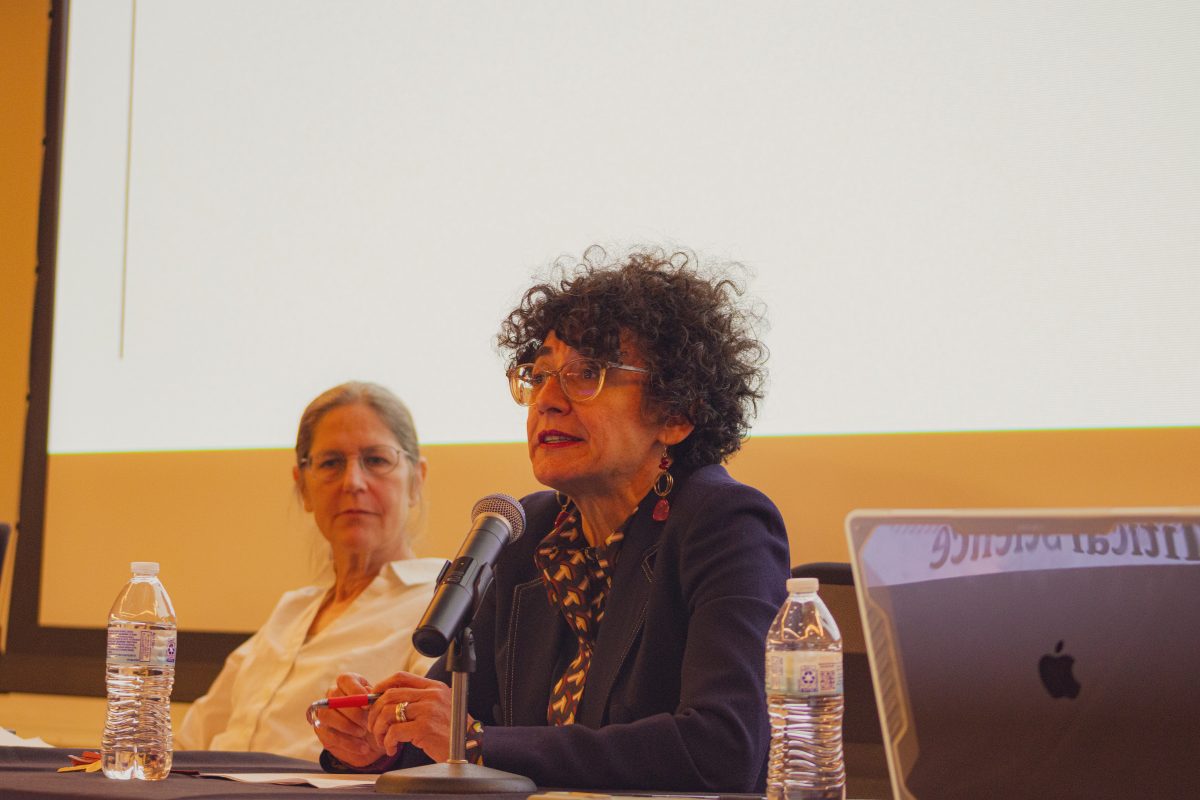The Muslim Student Association (MSA), in coordination with several academic departments, hosted the Teach-In on Palestine. The event was created to provide students with an opportunity to learn about the historical, religious, legal, philosophical and urban contexts of the situation in Palestine, especially the Israeli attacks on Palestinians following Oct. 7, when the Palestinian armed group, Hamas, launched a surprise attack on Israel. The event also sought to shed light on the increase in misinformation in the media regarding the situation and its history.
“It was just a mix of emotional students and faculty members reaching out to me and other members of the MSA, just wanting to spread some education regarding what was going on,” one MSA event organizer said.
The event took place on Nov. 1 in Chapman Auditorium. Though attendance was projected to be below 100 students, it reached over 250. Excess audience members were moved to alternative spaces. Students, faculty and staff quickly filled all the seats in the space, resulting in a line of audience members against the auditorium’s walls.
As the event far exceeded the maximum capacity, the remaining attendees were directed to two classrooms where the event was presented via Zoom. Students in these spaces still had the opportunity to submit questions.
To enter the auditorium, attendees were asked to confirm they were members of the Trinity community either by showing their Trinity ID or providing verbal verification. Before the panelists began, the organizers presented a local activist’s informational YouTube video to the audience and established ground rules. All attendees would write their questions on a card provided at the entrance, disruptive behavior would result in expulsion from the event, cell phones were to be silenced and recording was not permitted.
Four panelists — Sajida Jalalzai, assistant professor of religion; Rosa Aloisi, associate professor and department chair of political science; Judith Norman, professor and department chair of philosophy; and Habiba Noor, lecturer in education and interim chair of urban studies—investigated aspects of the conflict related to their fields and research for the event. Neither MSA nor Trinity staff regulated the panelists’ segments before their presentations.
Aloisi presented her legal perspective on the situation, detailing the laws of occupation and international law as they apply to the situation at hand. Despite not being required to, Aloisi spoke with MSA about what she would present.
“I did have a conversation with them because I wanted them to be aware of my perspective, not them to be aware of their perspectives. And I shared with them my perspective of the law. I did say that I was going to give an unbiased application of international criminal law and they were very happy to have a broader perspective on the conflict,” Aloisi said.
Students like John (J.J.) Ramos, sophomore international studies major, attended the Teach-In because of their interest in the presentation of the situation as well as its relation to academic pursuits. Ramos admired the diversity of panelists as well as their work to present the issue withstanding the adverse political climate.
“I really want to commend MSA and the panelists for the way they presented it and also for organizing it. That in itself is an incredibly, incredibly brave act,” Ramos said.
Students attended the event for varying reasons, but the mass of attendees demonstrated an overarching interest in learning about the ongoing situation.
“It was heartwarming to see everyone sitting down and listening,” Ramos said.
Overwhelming attendance in combination with participation and attentiveness throughout the Teach-In served as motivation for MSA to continue their educational pursuits regarding the ongoing situation. Both faculty and staff are projecting to host another educational event in the future.
“Especially with seeing how much the community is interested in hearing about it, we are definitely going to plan to do more events like this,” one MSA event organizer said.
*Due to safety concerns, MSA members requested to remain anonymous.







